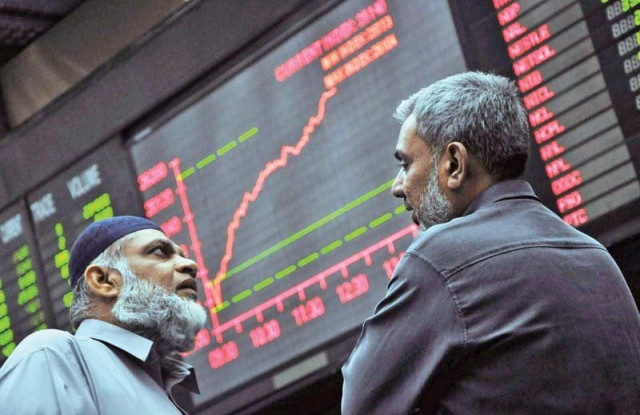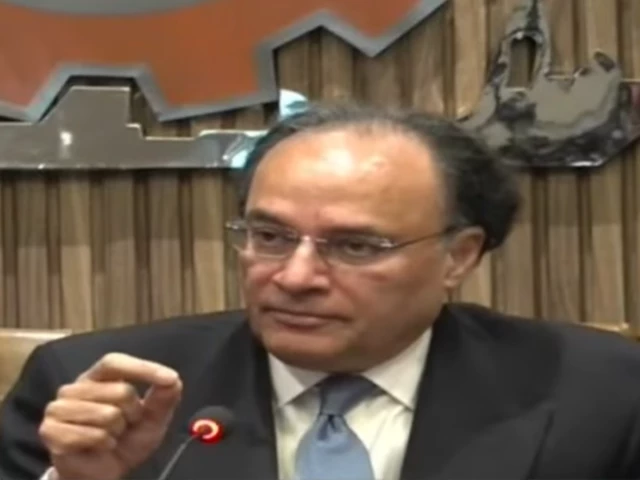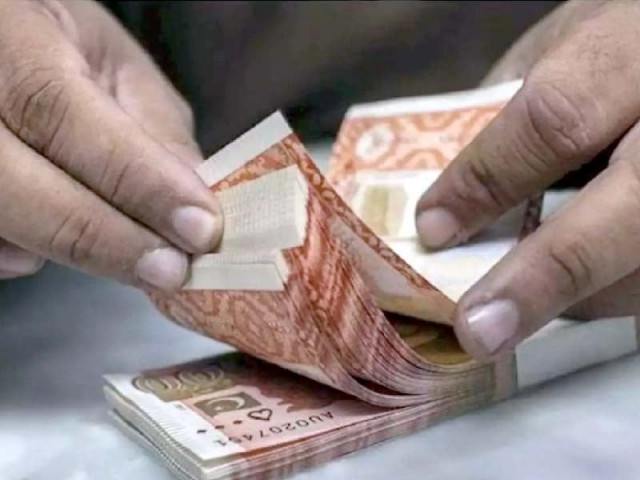Business
PSX ends losing streak, gains nearly 500 points | The Express Tribune

Foreign funds would divert their liquidity into buying Pakistan’s stocks. This would merely increases prices of shares and be profitable for those who already hold stocks. PHOTO: FILE
KARACHI:
The Pakistan Stock Exchange (PSX) turned positive on Friday after three consecutive days of losses as the benchmark KSE-100 index rose nearly 500 points, driven by remittance data released by the State Bank of Pakistan.
In October 2025, the remittances from expatriate Pakistani workers abroad reached $3.4 billion, higher by 7.4% month-on-month (MoM) and 11.9% year-on-year (YoY).
At the commencement of trading in the morning, the stock market remained positive and after a couple of dips, it rose significantly by midday. Following the Friday break, the index advanced to the intra-day high of 160,436 points. Afterwards, investors resorted to profit-taking at higher levels, bringing the market down from highs.
At close, the KSE-100 index recorded a modest increase of 496.11 points, or 0.31%, and settled at 159,592.90.
Topline Securities, in its market review, said that after a few consecutive negative trading sessions, some recovery was observed on Friday as the KSE-100 index largely traded in the positive zone. It closed at 159,593 points, up 0.31%.
“This positivity can be attributed to remittance numbers for October 2025, which came in at $3.42 billion, up 12% YoY and 7% MoM,” it said.
Top positive contribution to the index came from Mari Energies, UBL, Meezan Bank, Pakistan Petroleum, NBP and MCB Bank as they cumulatively contributed 474 points.
Traded value-wise, Attock Refinery (Rs1.86 billion), Mari Energies (Rs1.57 billion), NBP (Rs1.4 billion), Hubco (Rs1.25 billion) and The Bank of Punjab (Rs819 million) dominated the activity. Traded volume and value for the day stood at 769 million shares and Rs30.7 billion, respectively, Topline added.
Overall industry dispatches in FY25 remained largely flat at 38 million tons as weaker demand in the south offset stable volumes in the north, AHL said.
Overall trading volumes at the PSX decreased to 768.8 million shares compared with the previous tally of 957.3 million. The traded value of shares stood at Rs30.7 billion.
Shares of 479 companies were traded on the ready market, out of which 228 closed higher, 203 declined and 48 remained unchanged.
First National Equities led the volumes chart with trading in 85.9 million shares, losing Rs1.04 to close at Rs19.29. It was followed by Bank Makramah with 78.1 million shares, rising Rs0.11 to close at Rs5.61 and Pace Pakistan with 47.5 million shares, gaining Rs0.72 to close at Rs29.11. Foreign investors were sellers of shares worth Rs594.5 million, according to the NCCPL.
Business
Video: How ICE Is Pushing Tech Companies to Identify Protesters

new video loaded: How ICE Is Pushing Tech Companies to Identify Protesters
By Sheera Frenkel, Christina Thornell, Valentina Caval, Thomas Vollkommer, Jon Hazell and June Kim
February 14, 2026
Business
52 reforms in 52 weeks: Ashwini Vaishnaw outlines massive railway overhaul for 2026

Indian Railways has reached a global milestone in freight operations, securing its position as a premier international logistics hub. Union Minister for Railways, Ashwini Vaishnaw, announced today that the national carrier has achieved an unprecedented scale in its logistics division. Highlighting this achievement, the Minister stated, “Indian Railways has become the second-largest cargo carrier in the world.”
Building on this momentum, the Ministry has prepared a rigorous roadmap for the upcoming year aimed at systemic transformation. The government plans to roll out a series of weekly initiatives to modernise every facet of rail travel and transport. Vaishnaw explained the structured timeline, saying, “For 2026, Railways has resolved to implement 52 reforms in 52 weeks.”
The initial phase of this plan will prioritise the passenger experience, with a focus on improving the quality of onboard facilities. The Minister identified the primary starting point for this year-long agenda, noting, “The first reform is better onboard services in Railways.”
In addition to passenger amenities, the government is placing strong emphasis on the “Gati Shakti” initiative to streamline the nationwide movement of goods. This strategic focus is designed to strengthen the country’s supply chain. Vaishnaw confirmed the freight sector’s priority, adding, “The second concerns ‘Gati Shakti Cargo.’”
A cornerstone of the 2026 agenda is a comprehensive overhaul of sanitation and hygiene standards. The Ministry has developed a new blueprint to ensure that the rail network’s cleanliness meets global benchmarks. Detailing the specifics of the first major initiative, the Minister remarked, “Reform number one for 2026 will ensure proper end-to-end cleaning of the Railways… The concept of a clean rail station has been established.”
This cleanliness drive is not a short-term measure but a multi-year commitment to cover the entire Indian Railways fleet. The implementation will be phased to ensure thoroughness and consistency. Vaishnaw clarified the timeline, stating, “Over three years, this reform will be implemented across all trains.”
To ensure the success of these reforms, the Ministry is introducing a robust accountability framework. These measures will include performance-based contracts and the integration of modern digital tools to monitor progress in real time. Emphasising the shift towards professional and technology-driven management, the Minister concluded, “There will be clearly defined service-level agreements… There will be extensive use of technology.”
Business
BrewDog owners say craft beer company could be sold off

Craft beer brand BrewDog could be sold off after the company started the process to find new investors.
The Scottish beer brand recently announced plans to close all of its distilling brands, meaning it would no longer produce any of its spirits, including Duo Rum, Abstrakt Vodka, and Lonewolf Gin, at its distillery in Ellon, Aberdeenshire.
The company, which was founded in 2007, said it made the decision to focus on its beer brands, including the highly-popular Punk IPA, Elvis Juice, and Hazy Jane.
Now, in a statement, a spokesperson for BrewDog said the company had appointed Alix Partners to “support a structured and competitive process to evaluate the next phase of investment for the business.”
The statement said: “As with many businesses operating in a challenging economic climate and facing sustained macro headwinds, we regularly review our options with a focus on the long-term strength and sustainability of the company.
“Following a year of decisive action in 2025, which saw a focus on costs and operating efficiencies, we have appointed AlixPartners to support a structured and competitive process to evaluate the next phase of investment for the business. This is a deliberate and disciplined step with a focus on strengthening the long-term future of the BrewDog brand and its operations.”
Although no decisions have been made, a sale is under consideration.
In a statment BrewDog added: “BrewDog remains a global pioneer in craft beer: a world-class consumer brand, the No.1 independent brewer in the UK, and with a highly engaged global community. We believe that this combination will attract substantial interest, though no final decisions have been made.”
According to reports by Sky News, AlixPartners had begun sounding out prospective buyers in the last few days.
The company, which has 72 bars worldwide and four breweries in Scotland, the US, Australia, and Germany, said its breweries, bars, and venues will continue to operate as normal. It employs 1400 people across the organisation.
BrewDog’s founders James Watt and Martin Dickie are the company’s major shareholders alongside private equity company TSG, which invested £213 million in 2017, making it a 21 per cent shareholder.
In 2024, the beer brand grossed £357 million in sales, and it is a major independent brewer with 4 per cent market share in the UK grocery market.
-

 Entertainment1 week ago
Entertainment1 week agoHow a factory error in China created a viral “crying horse” Lunar New Year trend
-

 Business5 days ago
Business5 days agoAye Finance IPO Day 2: GMP Remains Zero; Apply Or Not? Check Price, GMP, Financials, Recommendations
-

 Tech1 week ago
Tech1 week agoNew York Is the Latest State to Consider a Data Center Pause
-

 Tech1 week ago
Tech1 week agoNordProtect Makes ID Theft Protection a Little Easier—if You Trust That It Works
-

 Fashion4 days ago
Fashion4 days agoComment: Tariffs, capacity and timing reshape sourcing decisions
-

 Tech1 week ago
Tech1 week agoPrivate LTE/5G networks reached 6,500 deployments in 2025 | Computer Weekly
-

 Business1 week ago
Business1 week agoStock market today: Here are the top gainers and losers on NSE, BSE on February 6 – check list – The Times of India
-

 Business1 week ago
Business1 week agoMandelson’s lobbying firm cuts all ties with disgraced peer amid Epstein fallout














